 20 citations,
October 2008 in “European journal of endocrinology”
20 citations,
October 2008 in “European journal of endocrinology” Lower lipin 1β in belly fat is linked to insulin resistance in people with polycystic ovary syndrome.
 19 citations,
July 2020 in “Journal of cancer survivorship”
19 citations,
July 2020 in “Journal of cancer survivorship” People undergoing chemotherapy need better support and information to cope with hair loss.
 19 citations,
June 2015 in “Seminars in Cutaneous Medicine and Surgery”
19 citations,
June 2015 in “Seminars in Cutaneous Medicine and Surgery” There is no cure for alopecia areata, and treatment success depends on the individual's situation.
 18 citations,
September 2018 in “Experimental physiology”
18 citations,
September 2018 in “Experimental physiology” Electro-acupuncture may help treat PCOS in rats by changing brain DNA methylation.
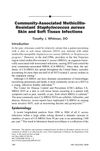 18 citations,
November 2008 in “Disease-a-Month”
18 citations,
November 2008 in “Disease-a-Month” A common cause of skin infections in the U.S. is a strain of bacteria resistant to certain antibiotics, and prevention focuses on cleanliness and avoiding close contact.
 18 citations,
June 1988 in “Culture, medicine and psychiatry”
18 citations,
June 1988 in “Culture, medicine and psychiatry” The perception of excessive hair growth in women as abnormal is more influenced by cultural norms than by medical reasons.
 17 citations,
November 2018 in “Dermatology”
17 citations,
November 2018 in “Dermatology” Most patients with frontal fibrosing alopecia had facial bumps, with Hispanic/Latino and premenopausal women being more affected, suggesting a more severe condition.
 17 citations,
November 2017 in “Dermatologic Clinics”
17 citations,
November 2017 in “Dermatologic Clinics” New techniques improve hair restoration success.
 17 citations,
July 2015 in “Biomolecules and Biomedicine”
17 citations,
July 2015 in “Biomolecules and Biomedicine” High Nesfatin-1 and low Vitamin D may increase blood pressure and heart rate in women with PCOS.
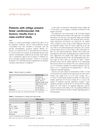 17 citations,
December 2011 in “Journal of the European Academy of Dermatology and Venereology”
17 citations,
December 2011 in “Journal of the European Academy of Dermatology and Venereology” People with vitiligo may have a lower risk of heart disease.
 16 citations,
November 2021 in “Antioxidants”
16 citations,
November 2021 in “Antioxidants” Managing oxidative stress might help treat low testosterone and related chronic diseases in aging men.
 16 citations,
April 2007 in “Journal of Obstetrics and Gynaecology Research”
16 citations,
April 2007 in “Journal of Obstetrics and Gynaecology Research” Prostate-specific antigen may be a new marker for excess male hormones in women with polycystic ovary syndrome.
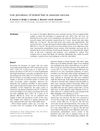 16 citations,
June 2005 in “Clinical and Experimental Dermatology”
16 citations,
June 2005 in “Clinical and Experimental Dermatology” Twisted hair is rare in severe anorexia nervosa, found in only 2 out of 30 patients.
 15 citations,
December 2019 in “Aesthetic Surgery Journal”
15 citations,
December 2019 in “Aesthetic Surgery Journal” Most insurance companies do not cover extra gender-affirming surgeries, with coverage being low and inconsistent.
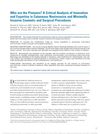 15 citations,
February 2016 in “Dermatologic Surgery”
15 citations,
February 2016 in “Dermatologic Surgery” Dermatologists are the main innovators in noninvasive cosmetic procedures, with other specialties also contributing significantly.
 15 citations,
September 2015 in “Journal der Deutschen Dermatologischen Gesellschaft”
15 citations,
September 2015 in “Journal der Deutschen Dermatologischen Gesellschaft” Skin doctors should recognize and treat conditions like hair-pulling and skin-picking early, often using therapy and medication, to help 50-70% of patients.
 15 citations,
January 2010 in “Reproduction, Fertility and Development”
15 citations,
January 2010 in “Reproduction, Fertility and Development” A certain gene variant may increase the risk of polycystic ovary syndrome in Chinese women.
 15 citations,
January 2002 in “Gynecological endocrinology”
15 citations,
January 2002 in “Gynecological endocrinology” Hormones affect skin aging and fat distribution, and treatments can help, but only minoxidil is proven for female hair loss.
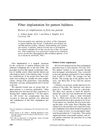 15 citations,
March 1981 in “Journal of The American Academy of Dermatology”
15 citations,
March 1981 in “Journal of The American Academy of Dermatology” Fiber implantation for pattern baldness was largely unsuccessful with many complications and is not recommended.
 14 citations,
October 2020 in “Journal of ethnopharmacology”
14 citations,
October 2020 in “Journal of ethnopharmacology” Lepidium sativum seed extracts helped reduce inflammation and improve insulin response in obese rats on a high-fat diet.
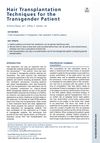 14 citations,
March 2019 in “Facial Plastic Surgery Clinics of North America”
14 citations,
March 2019 in “Facial Plastic Surgery Clinics of North America” Hair transplantation can help transgender patients affirm their gender identity.
 14 citations,
December 2007 in “Journal of The European Academy of Dermatology and Venereology”
14 citations,
December 2007 in “Journal of The European Academy of Dermatology and Venereology” The article concludes that dermatologists should prescribe lifestyle drugs carefully and consider mental health treatments for patients with disorders like BDD.
 13 citations,
February 2019 in “Journal of the American Academy of Dermatology”
13 citations,
February 2019 in “Journal of the American Academy of Dermatology” The document concludes that a new system using the SALT score should replace the current alopecia areata classification for better accuracy in assessing severity and prognosis.
 12 citations,
December 2020 in “Journal of The American Academy of Dermatology”
12 citations,
December 2020 in “Journal of The American Academy of Dermatology” The COVID-19 pandemic increased symptoms in people with skin picking and hair pulling disorders.
 12 citations,
October 2018 in “International Journal of Women's Dermatology”
12 citations,
October 2018 in “International Journal of Women's Dermatology” Hormone therapy in transgender women can affect hair growth and acne, and there are specific skin issues related to gender-affirming surgery, but more research is needed on their dermatological health.
 12 citations,
February 2007 in “Facial Plastic Surgery”
12 citations,
February 2007 in “Facial Plastic Surgery” Hair transplantation techniques have improved over 12 years, with follicular unit grafting providing more natural results and potential future advances in automation and genetics.
 11 citations,
March 2021 in “Dermatology and therapy”
11 citations,
March 2021 in “Dermatology and therapy” Researchers created a new tool to measure the effects of alopecia areata from the patient's view, focusing on hair loss, daily life, and emotional health.
 11 citations,
March 2021 in “Reproductive Biology and Endocrinology”
11 citations,
March 2021 in “Reproductive Biology and Endocrinology” Polycystic Ovary Syndrome (PCOS) symptoms vary globally, with bloating, high cholesterol, and glucose levels being common; the current diagnostic criteria may need refining.
11 citations,
September 2016 in “Archives of Dermatological Research” People with denser forearm hair have a higher risk of certain skin cancers.
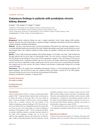 11 citations,
March 2016 in “Journal of the European Academy of Dermatology and Venereology”
11 citations,
March 2016 in “Journal of the European Academy of Dermatology and Venereology” Almost all patients with chronic kidney disease not yet on dialysis have at least one skin problem.





























